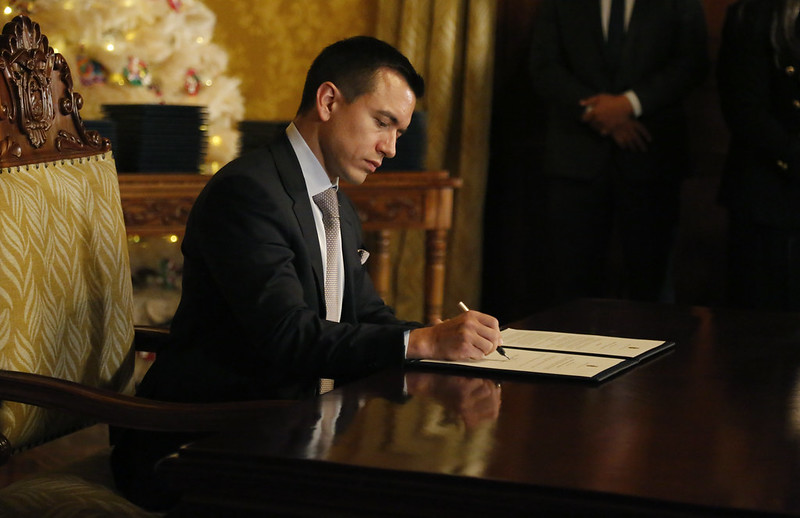Noboa, who assumed the presidential office in November, pledged to combat the surging violence and crime in the country, which is plagued by powerful local and international drug cartels.
He has requested the country’s Constitutional Court to provide advice on a referendum The court has 20 days to respond.
Through 11 questions, the referendum aims to secure the population’s support for the intervention of Ecuador's armed forces to combat crime, impose stricter prison sentences for serious crimes such as homicide or weapons trafficking, and enforce stricter penalties for terrorism and its financing, as well as the production and distribution of narcotics, human trafficking, money laundering, illegal mining, or hiring a killer.
The questions also include one concerning more rigorous checks on servants of the judicial system and another asking whether casinos, game rooms, and betting houses should be allowed to operate.
“The country is going through enormous security, employment and financial challenges,” warned the president.
"We need change and that change cannot be achieved if we do not unite,” he said.
Noboa, 35, became the country's youngest president in October 2023, following an election campaign marred by unprecedented levels of violence. This included the assassination of another presidential candidate, Fernando Villavicencio, just days before the first round of voting in August, as well as attacks on several politicians vying for various seats in the country’s administration.
According to the Global Initiative Against Transnational Organized Crime (GI-TOC), local and foreign mafia-style groups collaborate to engage in criminal activities such as drug trafficking, contract killings, extortion, illegal mining, and money laundering.
“Local groups have more moderate members than international organizations, but they facilitate transport and support other criminal activities. While they do not control territory, some have control of the prison system and deploy high levels of violence,” read the GI-TOC Organized Crime Index.
The report warns that the police and the military have been unable to enforce the law, allowing the country to become a hub for organized crime. It also highlights the police's inability to regulate prisoners, resulting in numerous outbreaks of violence in jails, with hundreds of people being killed.
The GI-TOC Organized Crime Index claims that in addition to local groups, Ecuador is home to several international crime organizations, including those from Colombia, Mexico, Albania, and China.
It also notes a growing presence of Balkan crime groups involved in drug trafficking and stresses that local Ecuadorian gangs are apparently imitating their aggressive and terrorist tactics in the quest for control of trafficking routes to Europe.

